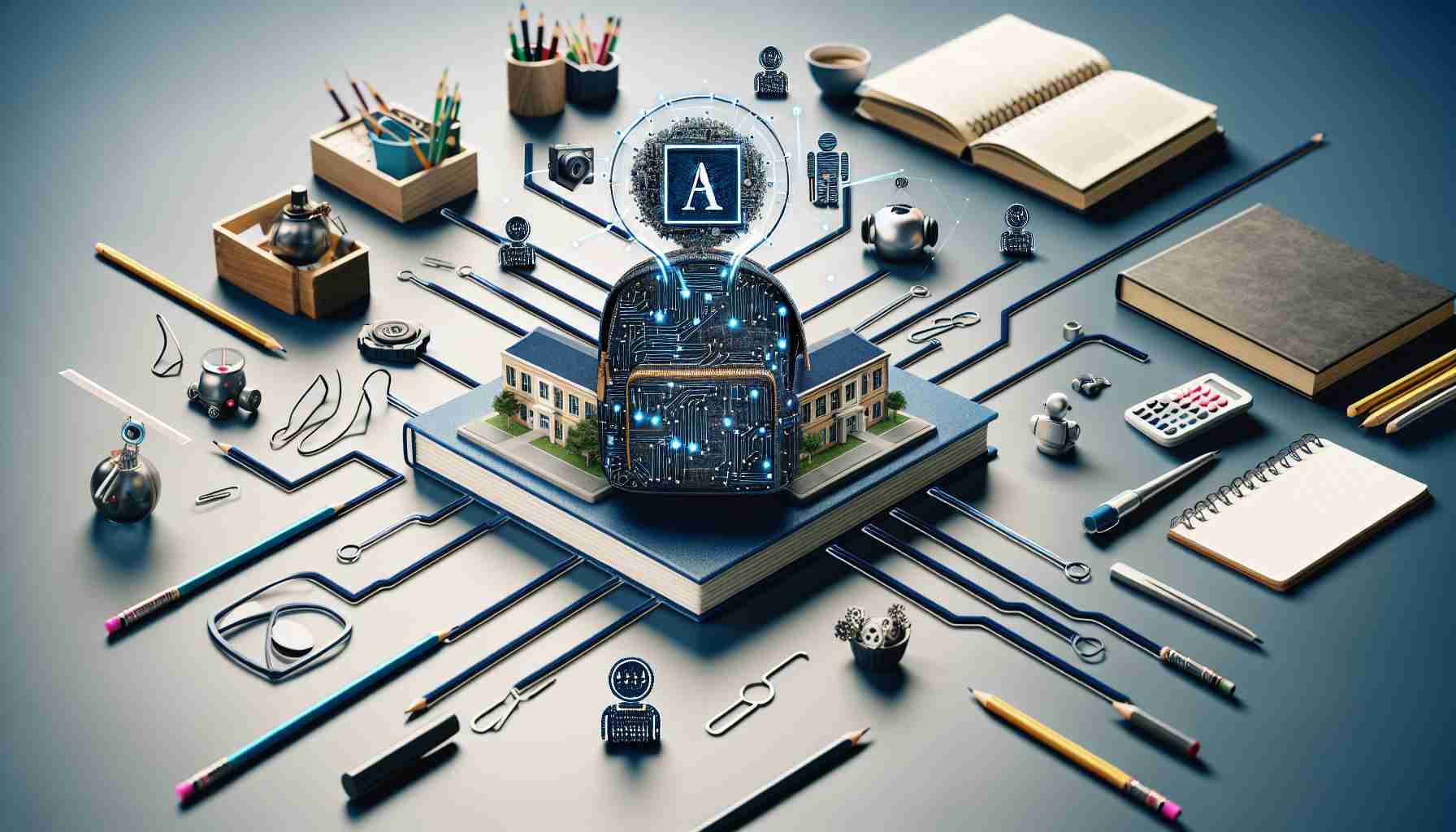The Education Ministry’s recent announcement of its plan to introduce artificial intelligence (AI) education in schools from 2027 has garnered both praise and skepticism. While many commend the ministry’s commitment to equipping students with AI knowledge and skills for the digital era, others raise concerns about the potential challenges and drawbacks of implementing AI education at such an early stage.
The president of the Malaysian Muslim Teachers Association, Mohd Azizee Hasan, applauds the ministry’s efforts but emphasizes the need for a thoughtful and effective execution of the plan. He emphasizes that before delving into advanced subjects like AI, focusing on basic literacy skills such as reading, writing, and counting is crucial.
It is estimated that over 435,000 Malaysian school students have learning difficulties, with more than 280,000 unable to master the fundamental 3M skills. Mohd Azizee warns that neglecting these issues may impede the ministry’s initiative and hinder the integration of AI education into the school curriculum.
Mohd Azizee also emphasizes the importance of a comprehensive approach to AI integration, which requires a fundamental shift in thinking and collaborative efforts. He advises policymakers not to hastily revolutionize education but to proceed with caution, taking into account potential problems and challenges that may arise.
Datin Noor Azimah Abdul Rahim, the chairman of the Parent Action Group for Education Malaysia, advocates for caution before introducing AI education at lower primary levels. She believes that premature implementation without ensuring teacher competence in AI could confuse children and have negative long-term consequences.
One primary school teacher, Subatra Subramaniam, sees the potential of AI education as a foundation for future technological advancements. While initially surprised by the announcement, she believes that exposing students to AI at a young age can prepare them for the digital era.
On the other hand, another teacher, Siti Sharah Ismail Yapi, raises concerns about excessive reliance on AI potentially hindering critical thinking skills in students. She reminds us of the importance of maintaining analytical abilities and not solely depending on AI for cognitive tasks.
While the introduction of AI education in schools is a commendable step, it is crucial to address concerns and challenges along the way. Teachers must enhance their skills while still embracing traditional teaching methods. It is also essential to ensure that AI education is gradually introduced, taking into account students’ readiness and the competency of teachers.
Providing students with AI knowledge and skills can undoubtedly be beneficial, but striking a balance between technological advancements and foundational skills must be a priority. Only with proper execution and continuous evaluation can AI education truly enhance teaching and learning experiences for students in Malaysia.
—
FAQ
1. What is AI education?
AI education involves teaching students about artificial intelligence, its applications, and its impact on society. It aims to equip students with the knowledge and skills to navigate the digital era effectively.
2. Why is focusing on basic literacy skills important before introducing AI education?
Before delving into advanced subjects like AI, strong foundations in basic literacy skills such as reading, writing, and counting are crucial. These skills provide students with a solid academic grounding and the ability to grasp complex concepts effectively.
3. What challenges may arise from the integration of AI education?
Some challenges that may arise from integrating AI education include teacher competency, potential confusion among students, and the risk of overdependence on AI. It is essential to address these challenges carefully to ensure the effectiveness of AI education.
4. What are the potential benefits of AI education?
AI education can prepare students for the digital era and future technological advancements. It enhances critical thinking skills, fosters adaptability, and equips students with knowledge that is increasingly relevant in today’s world.
5. How can teachers enhance their skills in AI?
Teachers can enhance their skills in AI through professional development programs, training workshops, and continuous learning. By staying updated with the latest developments in AI, teachers can effectively integrate AI education into their teaching methods.
Sources:
– Education Ministry
– Parents.com
– Teachers Association
The introduction of artificial intelligence (AI) education in Malaysian schools from 2027 has sparked a debate among educators and policymakers. While the move is applauded for equipping students with AI knowledge and skills, concerns have also been raised about potential challenges and drawbacks. One of the key concerns is the need to first address basic literacy skills such as reading, writing, and counting before diving into advanced subjects like AI. According to estimates, over 435,000 Malaysian school students have learning difficulties, and neglecting these issues may impede the success of AI education integration.
To ensure a comprehensive approach to AI integration, a fundamental shift in thinking and collaborative effort is required. Policymakers are advised to proceed with caution and consider potential problems and challenges that may arise. The Chairman of the Parent Action Group for Education Malaysia emphasizes the importance of caution before introducing AI education at lower primary levels. It is crucial to ensure that teachers are competent in AI to avoid confusion among children and prevent negative long-term consequences.
Some teachers see the potential of AI education as a foundation for future technological advancements. They believe that exposing students to AI at a young age can prepare them for the digital era. However, others raise concerns about excessive reliance on AI potentially hindering critical thinking skills. It is important to strike a balance between technological advancements and foundational skills to ensure a well-rounded education for students.
In order to address these concerns and challenges, it is necessary for teachers to enhance their skills while still embracing traditional teaching methods. Gradual introduction of AI education, taking into account students’ readiness and the competency of teachers, is essential. With proper execution and continuous evaluation, AI education can truly enhance teaching and learning experiences for students in Malaysia.
For more information, you can visit the following sources:
– [Education Ministry](https://educationministry.com)
– [Parents.com](https://parents.com.my)
– [Teachers Association](https://teachersassociation.org)

